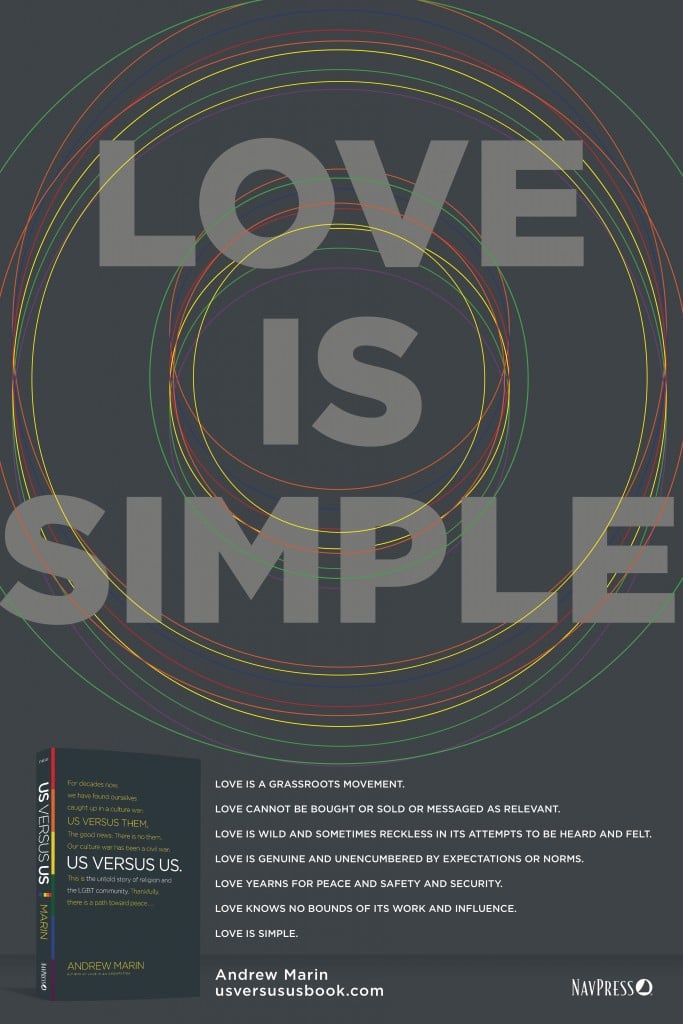This post is written by Andrew Marin, President and Founder of The Marin Foundation.
One of the biggest hinderances that stifles the work of reconciliation is memory. What we remember, especially of negative events, becomes for most not just a memory but a conviction. It is that powerful conviction which keeps us cycling in a cognitive space of being-wronged, victimized, and in certain situations, working towards the certainty of retribution.
Yet we must remember, as Harvard neuropsychologist Daniel Schacter says, that “the self is hardly a neutral observer of the world.” Schacter’s research suggests that our brain’s preeminent roles in encoding and retrieval are both biased in how our brain filters life’s occurrences. Combined with the powerful tendency for people to view themselves positively and their version of a situation correctly, this creates fertile ground for false memories that reconstruct our understanding of a situation to match our current belief about the situation in question. This is broadly called memory distortion; and our distorted memories are scientifically proven to be just as neurologically real as genuine memories.
Schacter notes that such memory distortion happens at an alarming rate throughout everyday life. Almost every single one of our memories are distorted to some extent through Transience, Absent-Mindedness, Blocking, Misattribution, Suggestibility, Bias, and Persistence.
Neuropsychological research concludes the only ways to keep a memory intact are to:
Never speak of it (because the moment one verbalizes the “memory” a whole heap of biases quickly enter)
Or,
Without talking to anyone, write the event down right away in as great of detail as possible (so internal and external biases cannot change the moment);
And then,
On regular intervals multiple times per day, over the course of at least ten days, verbally repeat what you wrote down. Only at that point is there a chance the genuine memory will be stored in your long-term memory.
I don’t know anyone who does any of these things! Period. Therefore the reality is that most of what we communicate as genuine memories are overtly false; without us even realizing the damage done to our memories.
The gist of the memory might be correct, but its specifics, and more importantly, its outcome and the emotional ties that accompany it, are biased towards our current feeling and situation. This is the reason so many people stay angry or hurt about certain situations for so long. Our biased memory is always circling back to our present feeling for real-time emotional reactions, which, in negative events, are emotionally negative. As Schacter puts it, “the way we were depends on the way we are.”
So the next time you get into a argument with someone, even those closest to you, know that unless you follow the three rules above, you are more likely than not upset about something that is not genuinely truth. The same goes for your other’s memory of the same situation.
It is time we start living in the reality of the falsehoods of our best intentions, and start working toward the mutuality of reconciling emotional, physical, interpersonal, and relational disconnects with those memories that, in all intents and purposes, science has proven are faltering from the same cognitive biases and deficiencies as humanity in general.
Our shared humanity stretches much further than our minds might lead us to believe.
Much love.











